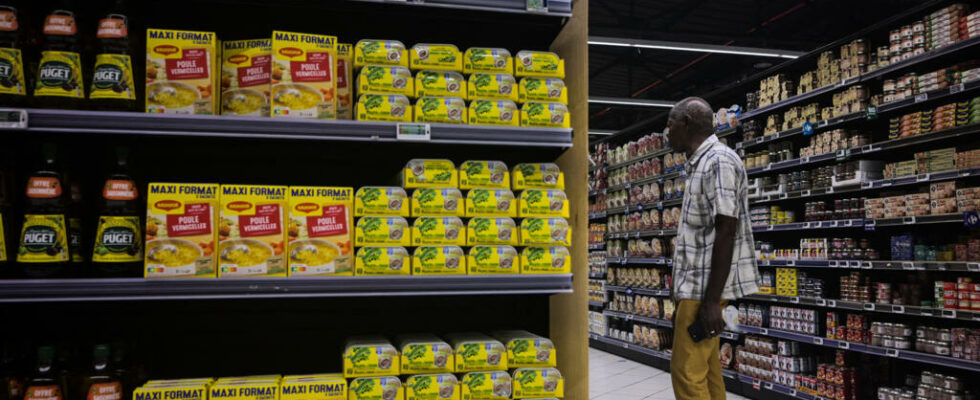The State announced on the evening of October 16 that it had signed an agreement, particularly with distributors, to reduce “ 20 % on average » food prices in Martinique, where for more than a month there has been a strong mobilization against the high cost of living. But the agreement was not signed by the collective Rally for the Protection of Afro-Caribbean Peoples and Resources (RPPRAC), at the origin of the mobilization.
3 mins
The protocol of objectives and means of combating the cost of living in Martiniquewas signed by the State, the Territorial Collectivity of Martinique, parliamentarians, distributors (hypermarkets and supermarkets in particular), wholesalers, and the Grand Maritime Port. On the island, food prices are currently 40% more expensive than in France.
This agreement, snatched at the end of a seventh round of negotiationsprovides for a reduction of 20% on average in the sales prices currently applied on a list of 54 product families corresponding to the most consumed food products.
This price reduction will be the result of reductions in purchasing and transport costs for the 6,000 imported food products, as well as a firm and obligatory commitment from major distributors to significantly reduce their margins on the sale of these products.
A reduction considered insufficient
But there is one big absentee among the signatories: the collective behind the mobilizations. He did not sign the agreement because he believes it is not enough. The collective wants the price reduction agreed by the State and various local stakeholders to concern all food products, and not just around fifty product families. Fresh produce and organic products must be included. For the collective, we are talking about 6,000 products out of 40,000, which is really insufficient.
The collective is ultra-determined. Blockades are maintained everywhere, and blockades will continue throughout Martinique. The lifting of these blockades is conditional on the arrival of the Minister of Overseas Territories, François-Noël Buffet, who is currently in New Caledonia. He welcomed the agreement, while ensuring that he would come to Martinique in due time, but that he does not like the pressure.
Extremely tense situation on site
Since the beginning of September, Martinique has been in the grip of very strong social mobilization which regularly degenerates into urban violence. In recent weeks, the island has seen looting, fires, road blockages and the invasion of Fort-de-France airport. As the collective Rally for the Protection of Afro-Caribbean Peoples and Resources calls for the movement to continue and is widely listened to, it is difficult to see how the situation could calm down.
A curfew, which came into force on October 10 between 9 p.m. and 5 a.m., has been extended until October 21. There is also a ban on the retail purchase, sale and transportation of fuel and explosive products, as well as the use of fireworks and other pyrotechnic articles.
The signed agreement should therefore not calm the situation. The collective is very excited and seems determined to continue its movement.
Also listenMartinique: “Most demonstrators demand state intervention to regulate prices in supermarkets”
